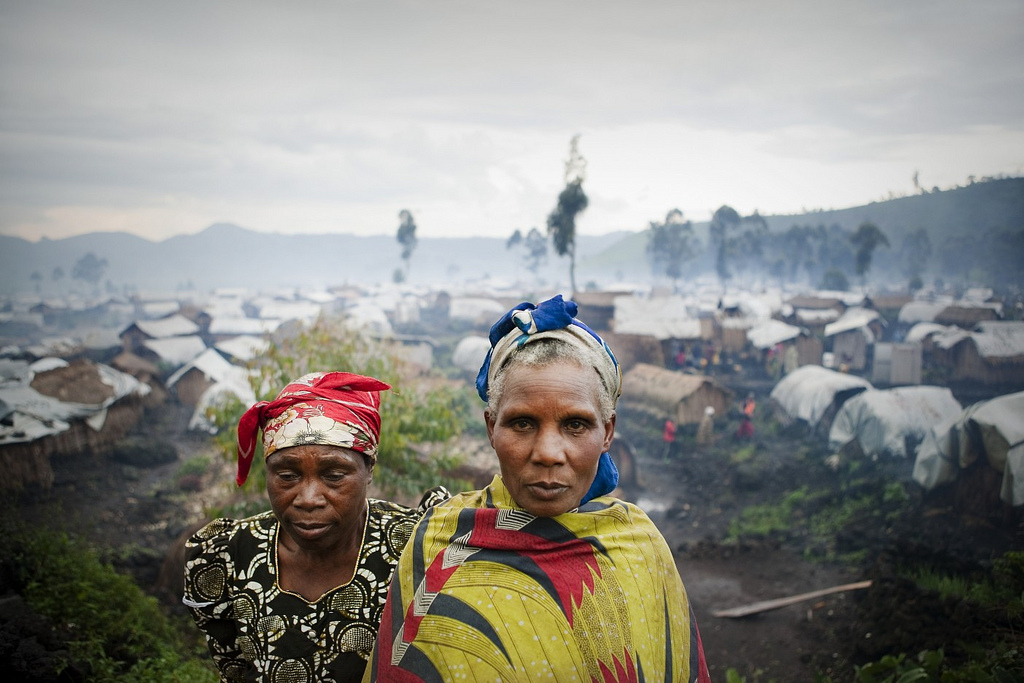International Law and the Problem of Failed States: A Case of Ambiguities
27 Jan 2012
The role of international law in an evolving international system has been a common refrain in our Editorial Plan. We have, for example, focused on the problems of modern sovereigntyand the nation-state’scollision with international legal prescriptions and norms. Over the past two weeks we have also focused on controversial topics such as the legal foundations for humanitarian intervention and the Responsibility to Protect (R2P). In keeping with this line of inquiry, today we turn our attention towards a perennial problem – the relationship (or not) of international law to failed or failing states.
The ‘problem’ with failed and failing states
If we are to believe Foreign Policy Magazine’s external pageIndex of Failed Statescall_made, there are perhaps up to sixty of them in the world today. While the likes of Somalia and Afghanistan are on this list, from a legal perspective there is a problem: there is no generally recognized definition of what constitutes a failed state. This definitional vacuum has inevitably led to external pagepolarized interpretationscall_made of this political condition. One characterization that seems to carry some weight, however, is Daniel Thürer’s, in which 'state failure' involves the implosion of structures of power and authority, a collapse of law and order and the absence of institutions capable of representing the state. In short, a failed state "though retaining legal capacity, has, for all practical purposes, lost the ability to exercise it.” Note the emphasis on capacity over substance here. Implicit in the emphasis is the conviction that you don’t dis-invent states. They do not necessarily cease to exist if they largely cease to function. In fact, there are few (if any) international legal mechanisms in place by which a state can be extinguished.
There are multiple reasons for privileging form over substance, to include maintaining easily identifiable borders and populations. In a globalizing world, however, there is also the potential problem of contagion. The disorder and sheer entropy of a failed state can spread to its neighbors and eventually the wider region. Because of this possibility, those outside its borders frequently feel compelled to act. The rub, of course, is that attempts to stabilize or prop up failed states will almost invariably collide with the Westphalian principle of non-intervention in the affairs of others, which is itself a cornerstone of customary international law. What we are left with then is a legal contradiction – an organization such as the United Nations can with genuine conviction invoke the R2P doctrine as a necessary response to genocide, ethnic cleansing and other atrocities that can be associated with state failure, but it can also remain committed to the non-intervention of outsiders in the internal affairs of sovereign states, even states that exist in principle rather than fact.
Twisting legal and common definitions for political ends?
The above tension is the one we know best when it comes to the potentially knotty relationship between failed states and international law. However, its prominence has not prevented calculating iconoclasts such as John Yoo from pushing it in even stranger directions. (And of deliberately trying to exploit the ambiguity of what constitutes a failed state for specific policy gains.) In 2002, for instance, then-Deputy Assistant Attorney General Yoo wrote a external pagememocall_made to the U.S. Department of Defense that potentially jeopardized the United States’ commitment to the Geneva Conventions. Yoo argued that because Afghanistan was indeed a failed state, those individuals captured in military operations there and suspected of being members of the Taliban or al-Qaeda were not entitled to Geneva protections, because the country was no longer in possession of “the attributes of statehood necessary to continue as a party to the Conventions.”
Yoo’s attempt to upend the traditional idea that even a 'failed' state could be a party to the Conventions immediately found its detractors. (Specifically William Taft in the U.S. Department of State.) Most importantly, or so they argued, Afghanistan was not a failed state. They pointed out that just as a state can exist with few if any functioning capabilities, these capabilities can exist without the formal trappings of statehood, such as widespread diplomatic recognition. Those formal trappings, in other words, are not a precondition for the ability to actually govern, even if their absence significantly limits that ability. Thus, while the highly dysfunctional Taliban government was only recognized by three other countries, because it did actually govern much of the country (at least prior to the 2001 US-led invasion), the Geneva Conventions still applied.
So, what we seem to have here are political vacuums in the world that exist without the benefit of a clear legal definition for what constitutes a failed state. We need such a definition. As enfeebled as these areas or ‘states’ might be, however, the general consensus is that they should remain woven into the fabric of international legal conventions and norms, even to the point of having the latter foisted upon them in R2P scenarios. That this creates frictions with the principle of non-interference with the internal affairs of a state, regardless of how fictitious it is, goes without saying. As long as fear of political contagion exists, and as long as notions of a greater international good continue to trump respect for ‘sovereignty,’ then this legal knot, like the other ones we have talked about this week, will continue.
Further Reading
“Fragile States and the International Criminal Court: Friends or Foes?”DIIS Policy Brief, 2008.
Daniel Thürer, “external pageThecall_madeexternal page“call_madeexternal pageFailedcall_madeexternal pagecall_madeexternal pageStatecall_madeexternal page”call_madeexternal pageandcall_madeexternal pagecall_madeexternal pageInternationalcall_madeexternal pagecall_madeexternal pageLawcall_made,” International Review of the Red Cross, No. 836, 1999.
Edward Newman, “external pageFailedcall_madeexternal pagecall_madeexternal pageStatescall_madeexternal pagecall_madeexternal pageandcall_madeexternal pagecall_madeexternal pageInternationalcall_madeexternal pagecall_madeexternal pageOrdercall_madeexternal page:call_madeexternal pageConstructingcall_madeexternal pagecall_madeexternal pageacall_madeexternal pagecall_madeexternal pagePostcall_madeexternal page-call_madeexternal pageWestphaliancall_madeexternal pagecall_madeexternal pageWorldcall_made,” Contemporary Security Policy, 30:3, 2009.
Stewart Patrick, “external pageThe Brutal Truthcall_made,” Foreign Policy, July/August 2011.

